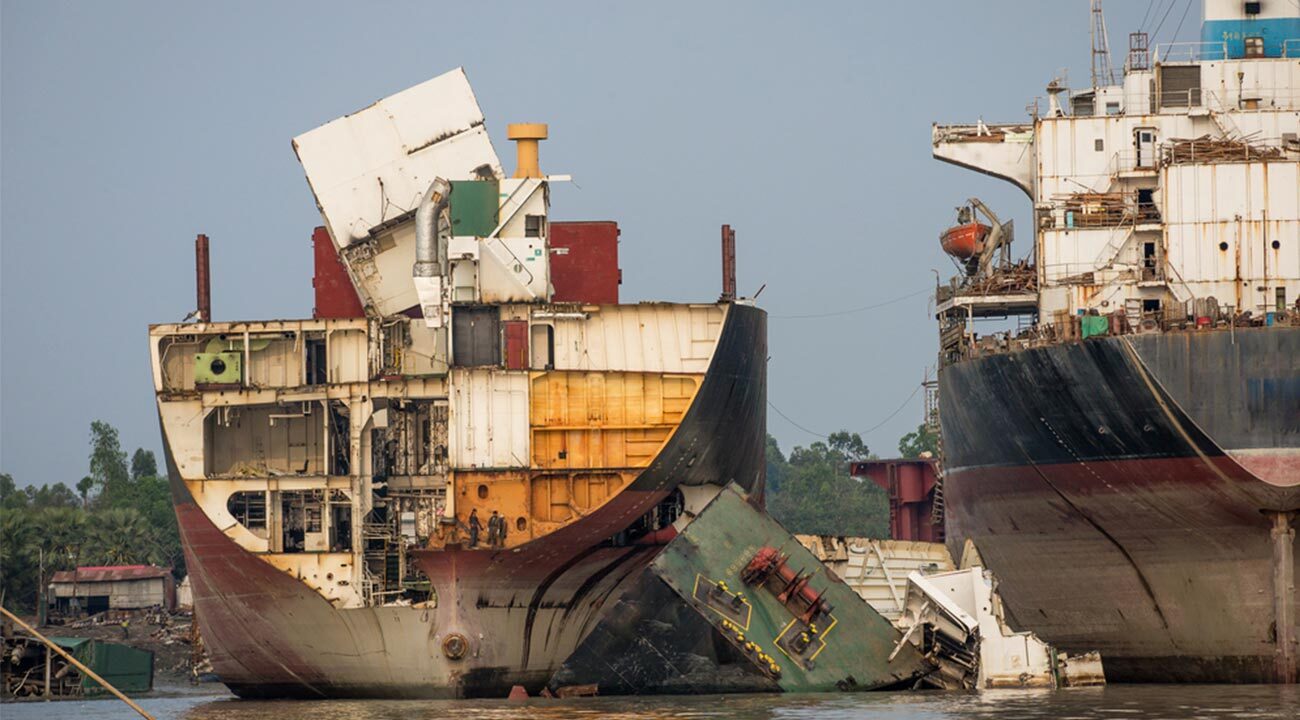
Bangladesh still top shipbreaking destination
DHAKA : Bangladesh maintained its position as the world’s top ship-breaking destination in 2024 despite a fall in imports of scrapped vessels compared to 2023.
The country imported 130 scrapped ships last year which was 23.53 per cent less than 170 ships imported in the preceding year 2023, according to data from the NGO Ship-breaking Platform (NSP) — an NGO advocating for safe and ethical ship dismantling.
However, industry insiders claimed that imports of ship witnessed significant decline both in number and in tonnage due to letter-of-credit (L/C)-opening issues thanks to the US dollar crisis and other related ones.
They also noted that total tonnage of imported ships fell hinting at a shift towards smaller vessels.
“We are unable to open L/C for large-sized vessel due dollar shortage while it needs approval from the central bank for opening L/C over $3.0 million,” said Hossainul Arefin, executive committee member of Bangladesh Ship Breakers and Recyclers Association (BSBRA). Obtaining various approvals, including environmental clearances, can take up to two months, accruing bank interest during the delay, he said.
Besides, the industry’s reclassification from “orange” to “red” has increased the number of required certifications, he claimed.
Ships brought in previously used to weigh 40,000 to 50,000 tonnes on average. But ships imported now are weighing about 2000 tonnes, according to industry insiders.
Despite the industry’s assurances of improved safety measures and declining accidents, rights groups remain concerned about the human and environmental hazards associated with ship-breaking globally.
According to NGO Shipbreaking Platform, in 2024, India imported scrapped ships, with 101, followed by Turkey 84, Pakistan 24, and the European Union 25 and the rest of the world 45 ships dismantled.
In 2022, Bangladesh imported 122 end-of-life ships for dismantling, down from 254 in 2021. This follows a downward trend since 2019 when the country brought in 236 ships. The figures for 2020 and 2018 were 144 and 185, respectively.
Local ship-breakers attributed the decline starting in late 2019 to factors including the Covid-19 pandemic and subsequent shutdowns.
They reported a business rebound in 2021 due mostly to pent-up demand, but the recent dollar crisis and high-interest rates are again negatively impacting trade.
According to BABRA, the total tonnage of imported ships fell to less than 1.0 million tonnes which was around 3.0 million tonnes in the fiscal year of 2018-19 when Bangladesh imported a total of 272 ships for dismantling.
According to the platform, some 409 ships were dismantled globally in 2024, of which 255 ended up in South Asian yards and Bangladesh remains the shipping industry’s first choice for scrapping, despite grave consequences for workers, local communities and fragile coastal ecosystems.
It said nine workers lost their lives dismantling ships in South Asia in 2024, with another 45 workers injured due to unsafe working practices.
It also mentioned that SN Corporation – which operates a yard on the beach of Chattogram, Bangladesh – saw one of last year’s worst accidents.
While dismantling an oil tanker, a massive explosion claimed the lives of six workers and left six others with critical injuries, it added.
Investigations revealed serious negligence and disregard for safety protocols, as well as inadequate hazardous waste management.
SN Corporation, which boasts holding a so-called Statement of Compliance with the Hong Kong Convention from Japanese classification society ClassNK, has lost its environmental clearance in Bangladesh as a result of the investigations, it noted.
Responding to queries over safety, Mr Arefin claimed that there are only 30 to 35 yards in operation that want to be compliant and working over the issues.
He, however, said so far seven yards have received ‘green certificate’ while another 20 are in the process of getting such certification at their own financing.
“That a facility such as SN Corporation – and the more than 100 beaching yards that have similarly obtained Statements of Compliance – supposedly fulfils the requirements of the Hong Kong Convention says much about the low standards set by the IMO,” said Ingvild Jenssen, executive director of the NGO Shipbreaking Platform.
And while the IMO also ignores everything that happens outside the facility gate – including whether or not there is adequate medical emergency response, and capacity to handle all toxic waste streams in a safe and environmentally sound manner – now, even yards that are not licensed to operate nationally maintain their Statement of Compliance, Ingvild Jenssen added.
“Clearly, the upcoming entry into force of the Hong Kong Convention does not provide the solutions needed to shift the sector towards sustainable ship recycling,” Ingvild Jenssen said in a statement.
